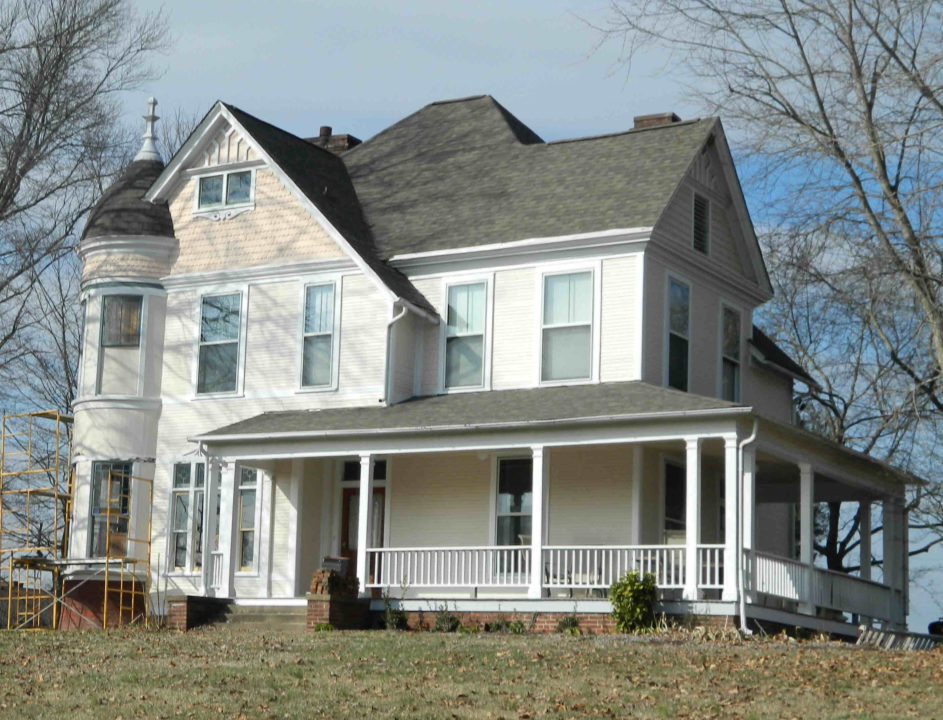Lillian McMillan was born in the Beverly section of Fountain City on June 20, 1884, the daughter of Thomas T. (1857-1925) and Mamie Heavener McMillan (1861-1923). Thomas was a wholesale grocer living on Tazewell Pike. Their Folk Queen Anne mansion was just east of the then-palatial homes and horse farms of Judge A.C. Grimm, longtime Circuit Court judge, and Sol H. George, owner of George’s Department Store on Gay Street and partner in the Fountainhead Hotel and the Fountainhead Railroad.
Lillian came of age in Knoxville when Peter Staub’s 2,000-seat Theater was featuring performances from Boston and New York with stars like the Barrymores, Sarah Bernhardt, James O’Neill and George M. Cohan.

Dorothy South (1884-1964). Known internationally for her starring performances, Miss South appeared on Broadway in numerous operettas.
Although the movie musical would not arrive until Warner’s release of “The Jazz Singer” in 1927, nascent silent films were reaching Knoxville and may also have ignited the flame that propelled Lillian into a career on the stage.
She left home in 1904 to study with William Whitney, famous Boston voice coach, before launching her professional theatrical career in 1915. She adopted “Dorothy South” as her stage name. Her beauty, her vocal abilities and her stage presence made her a natural for the operetta, a shorter and usually lighter form of opera.
Before there was Andrew Lloyd Webber, there were Victor Herbert, Fritz Kreisler, Rudolph Friml and Manuel Penella. Before “Evita” and “The Phantom of the Opera,” there were operettas like “Glorianna,” “Apple Blossoms,” “Princess Pat,” “Irene” and “The Wildcat.”
And, before there were stars like Elaine Paige and Madonna (“Evita”), Emmy Rossum and Sarah Lawrence (“The Phantom of the Opera”), there was Lillian McMillan (also known as Dorothy South) (1884-1964) who starred in lead roles on Broadway and made several international tours.
The operetta had become one of the most popular forms of theater in the early decades of the 20th century. Famous composers, like Irish-born Victor Herbert (1859-1924), Austrian-born Fritz Kreisler (1875-1962) and Czech-born Rudolph Friml (1879-1972), contributed to its popularity and made Dorothy South’s career possible.
She performed in Herbert’s “Princess Pat,” composed in 1915; Friml’s “Glorianna” composed in 1918 and Kreisler’s “Apple Blossoms,” composed in 1919.
The Knoxville Sentinel (Nov. 20, 1921 edition) reported that, “Miss South only recently returned from Australia and New Zealand where she played a six months engagement as (in the) leading role of ‘Irene.’ Enroute home she came through the Suez Canal and by way of Paris and London. In the latter city she was urged to accept a long engagement in an English company presenting ‘Irene,’ but she declined preferring to come back to her native land.”
Perhaps Dorothy South’s most famous role was that of a Spanish senorita Soleá in composer Manuel Penella’s tragic operetta, “The Wildcat,” which had been performed about 2,700 times overseas in its Spanish version and brought to New York to be performed in English.
The operetta premiered in Atlantic City and then was performed in Washington, D.C., where President and Mrs. Warren G. Harding and the Spanish ambassador were present for the first performance. Composer Penella was ecstatic about Dorothy South, praising her wonderful voice, magnetic personality and winsome stage presence.
When it came to New York, it was reviewed by The New York Times (Nov. 19, 1921) which said, “(it is) the liveliest and ‘horsiest,’ if not the ‘bulliest,’ representation of a bull-ring scene since Bizet’s ‘Carmen’ came to town.” (There were live horses and a live bull on stage for the performance.)
It is the story of Rafael, a toreador, who plans revenge on Juanillo, an outlaw mountaineer, who plotted to kill him on sight for the love of Soleá, his gypsy sweetheart. They agree to settle the contest in the ring. In one scene the brass band plays the familiar toreador theme while the two rivals march into the ring in their flamboyant traje de luces (suit of lights).
Rafael then sings his dramatic and poignant “Prayer to the Virgin” before combat begins. Then, during an enfermeria across the stage, he dies, not by the assassin, but after being gored by the bull.
As mourners grieve for Rafael, Juanillo takes Soleá back to a cave at his mountain headquarters. The townspeople, who have followed them, arrive to rescue her. As The Wildcat confronts them, he professes his awareness that he is unforgiven and will always be unforgiven. When Juanillo is surrounded by armed rurales who have come to arrest him, he asks that they take his knife and kill him on the spot, but none will do so. Rather than be taken alive, he pleads with one of his compadres to shoot him in the heart. As he falls, Soleá rushes to him and he dies in her arms as the curtain falls.
After her stage career had ended, Dorothy South wrote a novel that evolved from her international travel called “Hidden Roots.”
Lillian McMillan Stuart passed away in New York on Oct. 31, 1964, survived by her son Martin Lewis Stuart of Washington, D.C. and her brother John A. McMillan of Knoxville. Her husband, Frank Stuart, had died several years before. After graveside services, she was interred in the family burial plat in Old Gray Cemetery.
Author’s note: Interestingly, El Gato Montés [“The Wildcat”] was revived and performed widely in 1994 with Chilean soprano Veronica Villarroel as Soleá and Spanish tenor Placido Domingo as Rafael.
Jim Tumblin, retired optometrist and active historian, writes a monthly series called “Fountain City: Places That Made a Difference” for KnoxTNToday.com.

